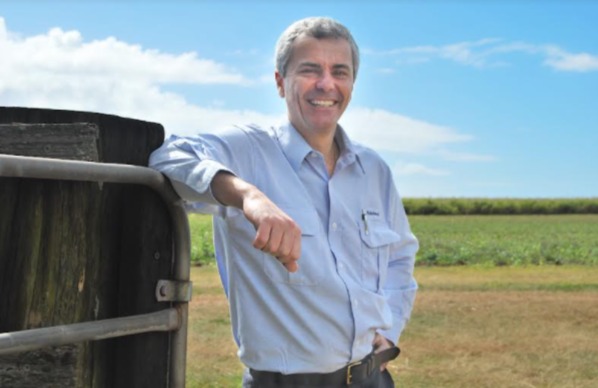
Rabobank Australia CEO Peter Knoblanche.
AUSTRALIA’S farmers are generally confident that high commodity prices, low interest rates and good seasonal conditions will continue in the year ahead, Rabobank’s latest rural confidence survey has shown.
The Q4 Rabobank Rural Confidence Survey completed last month showed overall national farmer confidence softened, but is still strong, with 84 percent of farmers surveyed forecasting the agricultural economy will continue to perform at, or exceed, its currently excellent levels in the year ahead.
The survey has also reported record high levels of business viability, with the Farm Viability Index – measuring farmers’ assessments of their own business viability – now sitting at the highest level in the survey’s history.
The latest survey found 35pc of farmers surveyed nationally were expecting conditions in the agricultural economy to improve over the year ahead, easing from 43pc with that view in the September quarter.
A further 49pc of respondents reported they were expecting farm business conditions to remain stable over the coming 12 months, while 13pc expect conditions will worsen – an increase on the 4pc of farmers with that view last quarter.
Rising commodity prices continue to be the primary driver of positive outlook across all sectors, with 77pc of farmers expecting conditions to improve citing commodity pricing as the key reason. Favourable seasonal conditions were still also a cause for optimism, but less so this quarter – cited by 58pc of those expecting improved conditions (down from 70pc last quarter).
In line with the overall easing in sentiment, Australian farmers have slightly revised down forecasts for the financial performance of their own businesses. The latest survey found 47pc of those surveyed expect their gross farm incomes to increase over the year ahead (was 51pc) while 40pc predict earnings to be the same.
The survey showed farmers were continuing to look for expansion and investment opportunities. On-farm projects and infrastructure which boost productivity, efficiency and alleviate workforce pressures were a particular focus.
The survey found almost 40pc of farmers surveyed expected to increase investment in their farm business next year. For those intending to increase spending, 71pc nominated on-farm infrastructure and 53pc had decided on new plant and machinery.
The latest survey did not take into account the income impacts of major rainfall and flooding in New South Wales and Queensland.
Rabobank Australia chief executive officer Peter Knoblanche said strong demand for Australian commodities, good seasons and favourable business settings were supporting solid, long-term confidence, although this would likely be diminished among grain growers and other flood-affected producers heading into the end of the year.
“Overall, there is significant long-term positivity in Australia’s farm sector – we see it in the high levels of farm viability reported, in farmers’ strong investment plans, and in the optimism about the year ahead.
“But while above-average rainfall has been a blessing in some sectors, it has caused significant heartbreak in others,” he said.
“The full extent of the damage to this year’s east coast winter grain harvest, in particular, is still being assessed, and it’s unclear yet just how much grain has been downgraded to feed quality, and how much will be a write-off.
“This is particularly heartbreaking for grain growers as they were very optimistic about this year’s crop – it had enormous potential in both yield and value.”
Mr Knoblanche said Rabobank’s Rural Commodity Price Index — comprising local prices for 10 agricultural commodities — eclipsed its previous all-time high in November, with small drops in the price of sheep meat, wool, and sorghum offset by increases for all other commodities, particularly canola, to set a new benchmark in the 12-year history of the index.
However, Mr Knoblanche said the ongoing rise in input costs – particularly fertiliser and farm chemicals – was growing as a concern and could be a significant challenge for the farm sector next year.
Rising input costs were the main issue nominated by farmers in the survey who were expecting conditions to deteriorate in the year ahead (cited by more than half). By comparison, 4pc attributed their pessimistic view to COVID-19 and 4pc to too much rain.
Mr Knoblanche said limited livestock numbers combined with strong global demand for sheep meat should help keep demand and prices high. Meanwhile, for wool growers, fine and superfine wool prices are holding at high levels on the back of improved demand and combined with excellent seasonal conditions.

HAVE YOUR SAY